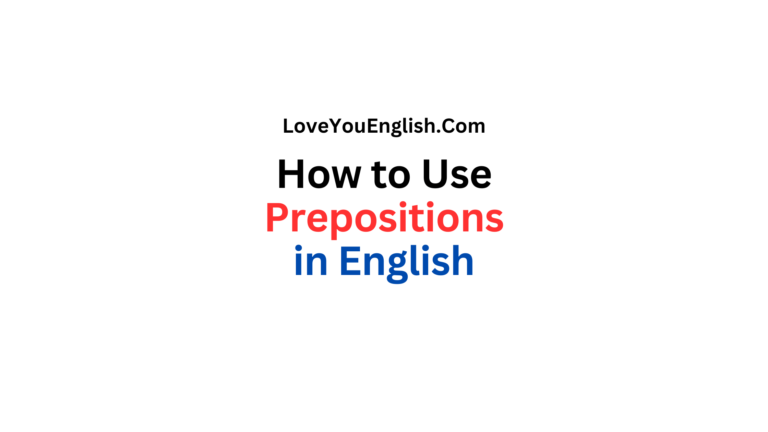English Grammar: How to Use the Verb “Suggest”
Have you ever wondered how to use the word “suggest” correctly in a sentence?
It’s a common verb in English, but many people get confused about how to use it properly.
Don’t worry—I will explain everything you need to know in simple, easy-to-understand language.
By the end, you’ll feel confident using “suggest” in your everyday conversations and writing.
Let’s dive in!
What Does “Suggest” Mean?
First, let’s talk about what “suggest” means. The verb “suggest” is used when you want to offer an idea, opinion, or plan for someone to think about.
It’s not about forcing someone to do something—it’s more like giving them a gentle push toward an idea.
For example, if your friend asks where to eat, you might say, “I suggest pizza.” You’re not demanding pizza; you’re just putting the idea out there.
“Suggest” can also mean pointing to something indirectly. For instance, if dark clouds are in the sky, you might say, “The weather suggests rain.” Here, you’re not offering a plan—you’re saying the clouds hint at rain coming soon.
Basic Rules for Using “Suggest”
Now that you know what “suggest” means, let’s look at how to use it in sentences. There are a few simple rules to follow. Don’t worry—these are easy to learn!
“Suggest” Needs an Object (Usually)
Most of the time, “suggest” is followed by something—an idea, a thing, or an action. This is called the object. For example:
“I suggest a movie.” (The object is “a movie.”)
“She suggests tea instead of coffee.” (The object is “tea.”)
Without an object, the sentence might feel incomplete. Saying “I suggest” by itself doesn’t tell the listener what you’re suggesting.
Use “That” for Full Ideas (Optional)
When you’re suggesting a complete idea, you can add “that” after “suggest.” For example:
“I suggest that we go to the park.”
“He suggests that you call him later.”
The word “that” is optional in casual English. You can also say, “I suggest we go to the park.” Both are correct, but “that” makes it sound a bit more formal.
Use the Base Form of the Verb After “That”
Here’s a key rule: when you use “suggest” with “that” and a verb, the verb stays in its base form.
That means no “-ing,” no “-ed,” and no “to.”
For example:
- Correct: “I suggest that he call her.”
- Wrong: “I suggest that he calling her.”
- Wrong: “I suggest that he to call her.”
The base form of “call” is just “call,” so that’s what you use.
“Suggest” + “-ing” for Actions
If you’re suggesting an action but don’t want to use “that,” you can add “-ing” to the verb. This is super common and simple. For example:
“I suggest going to the beach.”
“She suggests trying the new restaurant.”
Here, “going” and “trying” are the actions you’re suggesting. It’s a quick and easy way to use “suggest.”
Common Mistakes to Avoid
Even though “suggest” is a simple word, people sometimes mix it up. Let’s go over a few mistakes to watch out for so you can avoid them.
Don’t Use “To” After “Suggest”
A big mistake is adding “to” before the verb. In English, “suggest” doesn’t work with “to” like some other verbs (like “want to” or “plan to”). For example:
Don’t Confuse “Suggest” with “Tell”
“Suggest” is about offering an idea, not giving an order. If you say, “I suggest you study,” it’s a friendly idea. If you say, “I tell you to study,” it’s a command. Keep this difference in mind!
Watch Out for Tense
The tense of “suggest” changes based on when the suggestion happens, but the verb after “that” stays in the base form. For example:
Examples in Everyday Life
Let’s look at how “suggest” works in real situations. These examples will help you see how flexible and useful this verb is.
At Home:
“Mom suggests cooking dinner together tonight.”
Here, Mom is offering the idea of cooking as a group. It’s not an order—just a thought.
At Work:
“My boss suggests that we finish the project by Friday.”
The boss is putting forward a plan. The base form “finish” follows “that.”
With Friends:
“I suggest watching a comedy movie.”
This is a casual suggestion using the “-ing” form—perfect for a relaxed chat.
In Nature:
“The warm breeze suggests summer is near.”
Here, “suggest” means “hint at.” The breeze isn’t making a plan—it’s just a sign.
“Suggest” in Different Tenses
Like any verb, “suggest” changes depending on the time of the action. Here’s how it looks in different tenses:
- Present: “I suggest a walk.” (Happening now.)
- Past: “I suggested a walk yesterday.” (Happened before.)
- Future: “I will suggest a walk tomorrow.” (Will happen later.)
- Present Perfect: “I have just suggested a walk.” (Happened recently.)
No matter the tense, the rules about objects and verb forms stay the same. For example, in the past: “I suggested that he try harder.” The base form “try” doesn’t change.
Formal vs. Casual Use
“Suggest” can fit anywhere, from casual chats to formal writing. Here’s how it changes:
- Casual: “I suggest grabbing some food.”
The “-ing” form keeps it light and friendly. - Formal: “I suggest that the committee review the proposal.”
Adding “that” and using a full sentence makes it sound professional.
You can pick the style based on who you’re talking to. Friends? Keep it simple. Boss or teacher? Add a little polish.
Why “Suggest” Matters
You might wonder, “Why spend so much time on one word?” Well, “suggest” is a powerful little verb. It helps you share ideas without sounding bossy.
It’s polite, flexible, and works in tons of situations. Whether you’re planning a day out, giving advice, or just chatting, “suggest” keeps things smooth and friendly.
Plus, using it correctly makes your English sound natural. Native speakers use “suggest” all the time, so mastering it helps you fit right in.
Final Tips
Here’s a quick recap to keep in your pocket:
- “Suggest” offers ideas, not orders.
- Use “-ing” or “that” with a base verb—never “to.”
- Match the tense to when the suggestion happens.
- Practice with simple sentences until it feels easy.
Next time you’re talking or writing, throw in a “suggest” or two. “I suggest you try it!” See? It’s already starting to feel natural.
Conclusion
Using the verb “suggest” doesn’t have to be tricky. With a little know-how, you can use it to share ideas, make plans, or point out hints in the world around you.
Start small—suggest a cup of tea or a quick walk. Before you know it, you’ll be suggesting things left and right like a pro. So, what do you suggest we talk about next?







